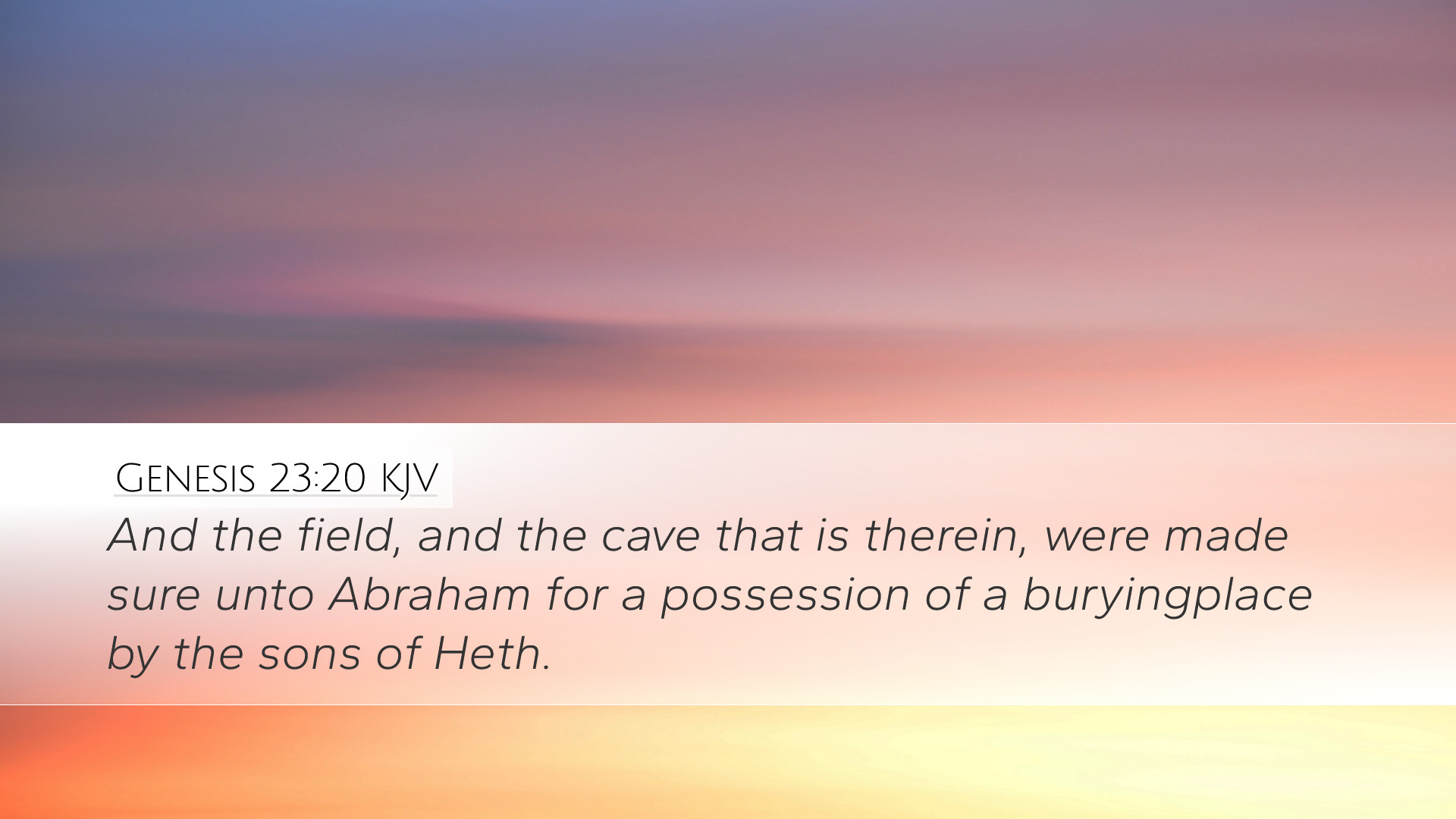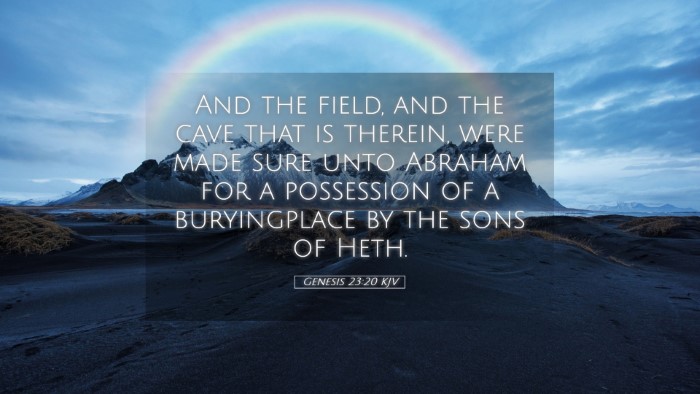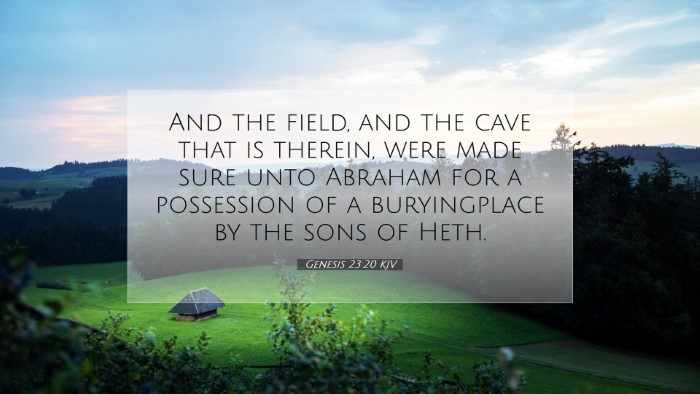Commentary on Genesis 23:20
Bible Verse: Genesis 23:20 - "So the field and the cave that is in it were deeded to Abraham by the sons of Heth as property for a burial site."
Introduction
This passage stands at a significant juncture in the narrative of Abraham’s life. It marks the acquisition of a burial place for Sarah, serving as the first legal ownership that Abraham secured in the Promised Land. The context surrounding this event offers profound insights into the themes of faith, promise, and legacy within the Abrahamic narrative.
Exegesis of Genesis 23:20
This verse concludes the narrative of Sarah's burial and establishes the importance of the purchase of the cave of Machpelah. This acquisition is not merely a transaction; it signifies Abraham’s faith in God's promise regarding the land. The act of purchasing land in Canaan provides a tangible expression of hope for fulfillment of God's covenant.
Theological Significance
- Faith and Ownership: Abraham's purchase of the burial site is a testament to his belief in God’s promise that his descendants would inherit the land.
- Covenant and Legacy: This act underscores the linkage between Abraham's faith and future generations—the land becomes a familial inheritance.
- Human Mortality: The burial of Sarah highlights the reality of death, yet the acquisition reflects Abraham’s anticipation of resurrection and hope in God’s ultimate plan.
Insights from Public Domain Commentaries
1. Matthew Henry's Commentary
Matthew Henry notes that the purchase of the cave of Machpelah was a significant step in establishing a foothold in Canaan. He emphasizes that the sons of Heth recognized Abraham’s stature and did not under-value his request, indicating a mutual respect. Henry also points out the aspect of sincerity in Abraham's dealings—he did not take land without compensation, highlighting the importance of integrity in obtaining what is rightfully needed.
2. Albert Barnes' Notes on the Bible
Albert Barnes provides a detailed analysis of the social and legal implications of burial customs in the ancient Near East. He remarks that the act of purchasing a burial site was an assurance of permanence and belonging—Abraham, by owning a part of the land, demonstrated his commitment to the covenant. Barnes also reflects on the pragmatism of the purchase; Abraham’s foresight in securing the land points toward his understanding of future generations needing a place of identity and rest in the Promised Land.
3. Adam Clarke's Commentary
Adam Clarke emphasizes the emotional component tied to the burial of Sarah. Clarke suggests that the purchase was not merely a legal transaction; it was also an act of love and remembrance. He elucidates that the cave itself, as a burial site, signifies Abraham's deep attachment to Sarah and underscores the importance of familial bonds within the faith narrative. Clarke also points out that the negotiation with the Hittites reveals significant cultural dynamics, exhibiting Abraham’s diplomatic skills and respect within the local society.
Practical Applications for Today
- Legacy Planning: Just as Abraham planned for his future generations, contemporary believers are encouraged to consider their legacies and how their faith and values will impact their descendants.
- Faith in Action: Abraham’s commitment to purchase the land teaches us about acting in faith, even when the fulfillment of promises may not be immediately visible.
- Integrity in Dealings: The respectful negotiation between Abraham and the Hethites provides a model for how Christians should engage ethically in commerce and relationships.
Conclusion
Genesis 23:20 is more than a statement of real estate; it is a profound declaration of faith, hope, and love. Abraham's purchase not only provides a resting place for Sarah but also marks the beginning of a legacy in the land promised to him and his descendants. The insights drawn from public domain commentaries illuminate the depth of this historical narrative and its significant implications for believers today.


